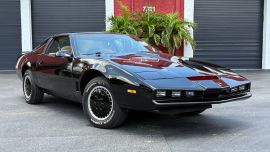There is more than “a good relationship” with President Javier Milei and “the good people” – as Sergio Agüero describes the sheikhs from the United Arab Emirates who own Manchester City – are interested in opportunities in Argentine football.
Since the arrival of Milei to the Casa Rosada last December, ‘Kun’ Agüero – former national team star striker and an ambassador the City Football Group that owns his former team Manchester City – has, with more subtlety than noise, vocalised his support for the privatisation of Argentina’s football clubs. It’s an old yearning that was previously pushed by former president Mauricio Macri that is now back on the public agenda.
Milei acknowledged recently that he has spoken to Agüero, praising him for his “not at all conventional intelligence.” Almost simultaneously, the ex-Manchester City striker revealed on his Twitch channel (which reaches younger generations in huge numbers) that the Arab sheikhs “would surely be thrilled to help a club like Independiente progress.”
On top of everything else, Agüero did this just days before his former side played a key Copa Libertadores match, on what became “La Noche del Rey,” a sort of early celebration marking 120 years of history.
The privatisation of Argentina’s member-owned football clubs is back on the agenda. There are presidential intentions, corporate transactions by the dozen and plenty of people supporting the potential arrival of sports corporations. Naturally, there are also parliamentary and executive bills seeking to accelerate the move or at least provide them with a legal framework: a recent photo of Tourism, Sports & Environment Secretary Daniel Scioli and La Libertad Avanza deputy Juliana Santillán, is part of that multi-faceted plan.
Santillán, who is advised by businessman Guillermo Tofoni (who is at war with Argentine Football Association chief Claudio Tapia), knows that the progress of the sports corporations project will allow their progress in the libertarian party.
There are myriad signals of how a plan is being designed to permeate those most reluctant to accept the arrival of private and foreign capital to Argentine clubs and its sources.
Why is Independiente in the spotlight? Because, just as it happened with Racing Club over two decades ago, an economic and institutional crisis experienced by the club is enabling that debate.
“We know that between the leadership of Independiente, there are internal controversies on this subject,” said a top AFA official, where the progress of the privatisation project is being watched closely.
The controversies at Independiente come from one of two sources: on the one hand, from club president Néstor Grindetti, an actuary with a financial background and a personal friend of Mauricio Macri ever since the days of the Socma Group; on the other hand, the ‘Champagne Group,’ an association of leaders that controls the Rojo whoever may be at the helm, establishing power in prolonged primaries, but holding no intention to change the status quo.
Both sides know equally well that any progress on the privatisation project will probably be curbed, given the lack of support for the initiative from most Independiente supporters. Milei, as Fernando Marín (Macri’s sports spokesman) did in previous times too, knows that, which is why they always clarify that their proposal is a new one arriving to the table.
There are more than a few peopletoo who claim that Agüero’s role cannot be separated from that of Carlos Tevez, the current Independiente coach and another former successful footballer with well-oiled links to the City Football Group. He is another ex-pro who enjoyed a good relationship with Macri.
Tevez’s recent angry confrontation with Toviggino, stemming from the usual refereeing errors favouring the Barracas Central led by Tapia, can be understood from this angle. It is a story set to be continued.



















Comments